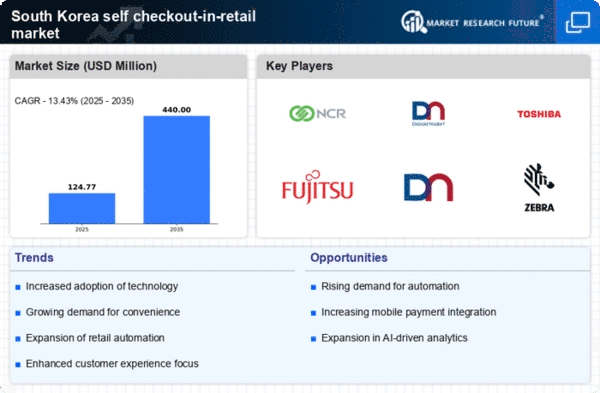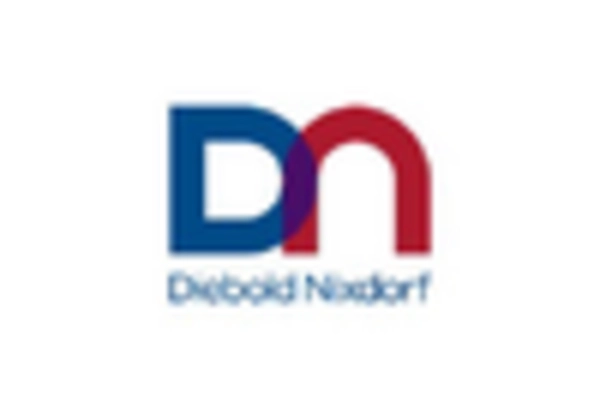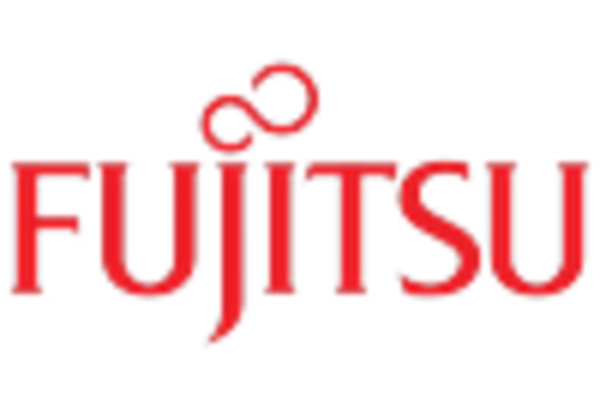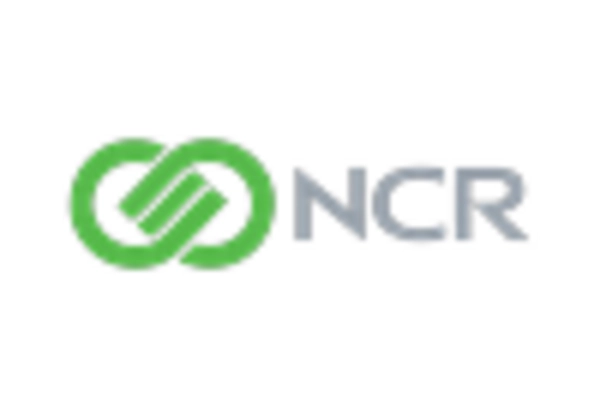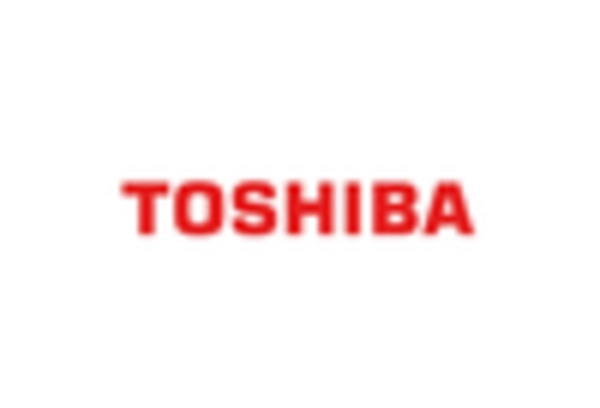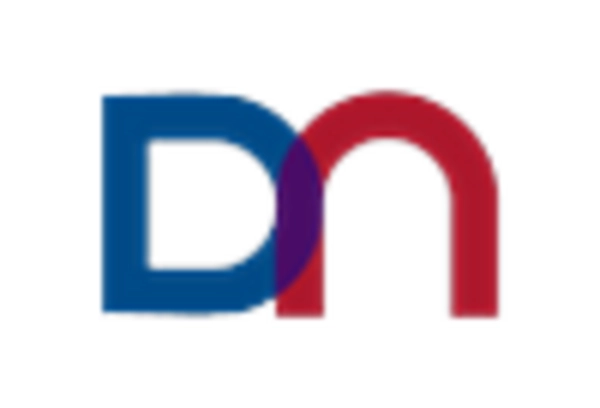Increased Labor Costs
The self checkout-in-retail market in South Korea is experiencing a notable shift due to rising labor costs. As wages increase, retailers are compelled to seek cost-effective solutions to maintain profitability. The implementation of self checkout systems allows retailers to reduce the number of staff required at checkout points, thereby lowering operational expenses. In 2025, labor costs in the retail sector are projected to rise by approximately 5%, prompting many retailers to invest in self checkout technology. This trend indicates a strategic move towards automation, which not only addresses cost concerns but also enhances operational efficiency. Consequently, the self checkout-in-retail market is likely to expand as more retailers adopt these systems to mitigate rising labor expenses.
Consumer Demand for Speed
In the fast-paced retail environment of South Korea, consumer demand for speed and efficiency is driving the growth of the self checkout-in-retail market. Shoppers increasingly prefer quick transactions, and self checkout systems cater to this need by significantly reducing wait times. Data suggests that self checkout lanes can process transactions up to 30% faster than traditional checkout methods. This efficiency appeals to consumers who value their time, particularly in urban areas where convenience is paramount. As a result, retailers are investing in self checkout technology to enhance customer satisfaction and streamline operations. The self checkout-in-retail market is thus positioned to thrive as it aligns with the evolving expectations of consumers seeking rapid service.
Evolving Retail Landscape
The self checkout-in-retail market is adapting to the evolving retail landscape in South Korea, characterized by the rise of e-commerce and omnichannel shopping experiences. As consumers increasingly blend online and offline shopping, retailers are seeking ways to create seamless experiences. Self checkout systems are being integrated with online platforms, allowing customers to order online and pick up in-store with minimal friction. This integration not only enhances convenience but also encourages foot traffic in physical stores. In 2025, it is estimated that omnichannel retail strategies will account for over 25% of total retail sales in South Korea. Consequently, the self checkout-in-retail market is likely to flourish as retailers embrace these innovative approaches to meet changing consumer expectations.
Technological Advancements
The self checkout-in-retail market is being propelled by rapid technological advancements that enhance the functionality and user experience of self checkout systems. Innovations such as artificial intelligence, machine learning, and advanced scanning technologies are making these systems more intuitive and user-friendly. In South Korea, the integration of AI-driven analytics allows retailers to better understand consumer behavior and optimize checkout processes. Furthermore, the market is witnessing a surge in the adoption of mobile self checkout solutions, which enable customers to complete transactions using their smartphones. This technological evolution not only improves operational efficiency but also attracts tech-savvy consumers, thereby expanding the self checkout-in-retail market.
Shift Towards Contactless Transactions
The self checkout-in-retail market is benefiting from a pronounced shift towards contactless transactions in South Korea. As consumers increasingly prioritize hygiene and safety, contactless payment options have gained traction. Self checkout systems that support contactless payments, such as mobile wallets and NFC technology, are becoming essential in retail environments. This trend is reflected in a reported increase of over 40% in contactless payment usage among consumers in 2025. Retailers are responding by upgrading their self checkout systems to accommodate these preferences, thereby enhancing the shopping experience. The growing demand for contactless transactions is likely to further drive the expansion of the self checkout-in-retail market.


